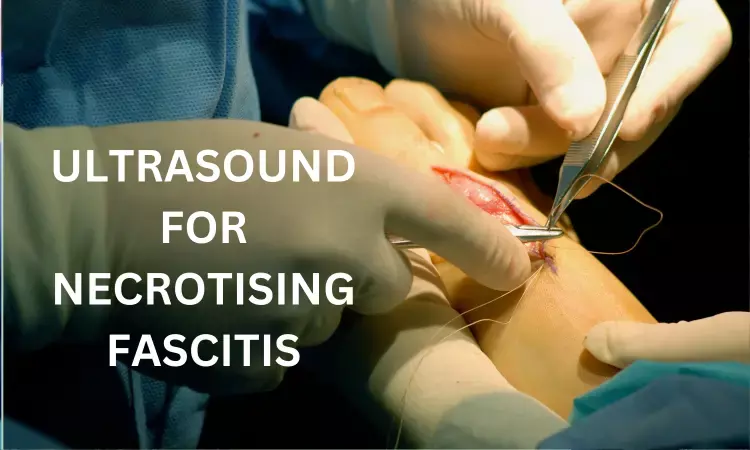- Home
- Medical news & Guidelines
- Anesthesiology
- Cardiology and CTVS
- Critical Care
- Dentistry
- Dermatology
- Diabetes and Endocrinology
- ENT
- Gastroenterology
- Medicine
- Nephrology
- Neurology
- Obstretics-Gynaecology
- Oncology
- Ophthalmology
- Orthopaedics
- Pediatrics-Neonatology
- Psychiatry
- Pulmonology
- Radiology
- Surgery
- Urology
- Laboratory Medicine
- Diet
- Nursing
- Paramedical
- Physiotherapy
- Health news
- Fact Check
- Bone Health Fact Check
- Brain Health Fact Check
- Cancer Related Fact Check
- Child Care Fact Check
- Dental and oral health fact check
- Diabetes and metabolic health fact check
- Diet and Nutrition Fact Check
- Eye and ENT Care Fact Check
- Fitness fact check
- Gut health fact check
- Heart health fact check
- Kidney health fact check
- Medical education fact check
- Men's health fact check
- Respiratory fact check
- Skin and hair care fact check
- Vaccine and Immunization fact check
- Women's health fact check
- AYUSH
- State News
- Andaman and Nicobar Islands
- Andhra Pradesh
- Arunachal Pradesh
- Assam
- Bihar
- Chandigarh
- Chattisgarh
- Dadra and Nagar Haveli
- Daman and Diu
- Delhi
- Goa
- Gujarat
- Haryana
- Himachal Pradesh
- Jammu & Kashmir
- Jharkhand
- Karnataka
- Kerala
- Ladakh
- Lakshadweep
- Madhya Pradesh
- Maharashtra
- Manipur
- Meghalaya
- Mizoram
- Nagaland
- Odisha
- Puducherry
- Punjab
- Rajasthan
- Sikkim
- Tamil Nadu
- Telangana
- Tripura
- Uttar Pradesh
- Uttrakhand
- West Bengal
- Medical Education
- Industry
POCUS superior modality for diagnosing Necrotizing fasciitis

USA: According to a study published in the American Journal of Emergency Medicine, Point-of-care ultrasound (POCUS) is more reliable in diagnosing Necrotizing fasciitis (NF) because it has good sensitivity and specificity. The researchers have considered using POCUS as an adjunctive tool to the initial clinical decision-making for diagnosing NF.
It is already known that NF is deadly, and diagnosing it remains challenging. Any delay in diagnosis increases the risk of mortality, rapid rate of tissue necrosis and higher chances of sepsis.
The skin signs can be subtle in the early course of the disease, while marked redness and bullae suggest a more advanced disease.
History, physical, and Laboratory Risk Indicators for Necrotizing Fasciitis are not very sensitive.
The use of POCUS is widely increasing for the diagnosis of skin and soft tissue infections. It is even faster and more safe compared to CT.
Against the above background, a study was conducted by a team of researchers led by Amy Marks to determine POCUS accuracy for diagnosing NF. The researchers included two prospective studies and one retrospective. The study outcomes were sensitivity and specificity.
The study summary includes the following:
- The database searched were PubMed, Scopus, CINAHL, LILACS, the Cochrane databases, Google Scholar, and bibliographies of selected articles.
- QUADAS-2 tool was used to determine quality analyses.
- The researchers identified three papers, including 221 patients with a mean age of 57.
- 33% of patients had NF.
- True positive rate: 33% (73 of 221 patients).
- The sensitivity range was 85.4%–100%.
- The specificity range was 44.7% to 98.2%.
- The most sensitive was Fluid accumulation along the fascial plane, 85.4 %.
- The most specific was subcutaneous emphysema, 100%.
To conclude, POCUS has good sensitivity and specificity for diagnosing NF.
The study’s limitations were few studies, study differences prevented meta-analysis, all studies used convenience samples, raising the risk for selection bias and blinding was poorly reported.
Further reading:
Marks, Amy, et al. “Ultrasound for the Diagnosis of Necrotizing Fasciitis: A Systematic Review of the Literature.” The American Journal of Emergency Medicine, vol. 65, Elsevier BV, Mar. 2023, pp. 31–35. Crossref, https://doi.org/10.1016/j.ajem.2022.12.037.
BDS, MDS in Periodontics and Implantology
Dr. Aditi Yadav is a BDS, MDS in Periodontics and Implantology. She has a clinical experience of 5 years as a laser dental surgeon. She also has a Diploma in clinical research and pharmacovigilance and is a Certified data scientist. She is currently working as a content developer in e-health services. Dr. Yadav has a keen interest in Medical Journalism and is actively involved in Medical Research writing.
Dr Kamal Kant Kohli-MBBS, DTCD- a chest specialist with more than 30 years of practice and a flair for writing clinical articles, Dr Kamal Kant Kohli joined Medical Dialogues as a Chief Editor of Medical News. Besides writing articles, as an editor, he proofreads and verifies all the medical content published on Medical Dialogues including those coming from journals, studies,medical conferences,guidelines etc. Email: drkohli@medicaldialogues.in. Contact no. 011-43720751


